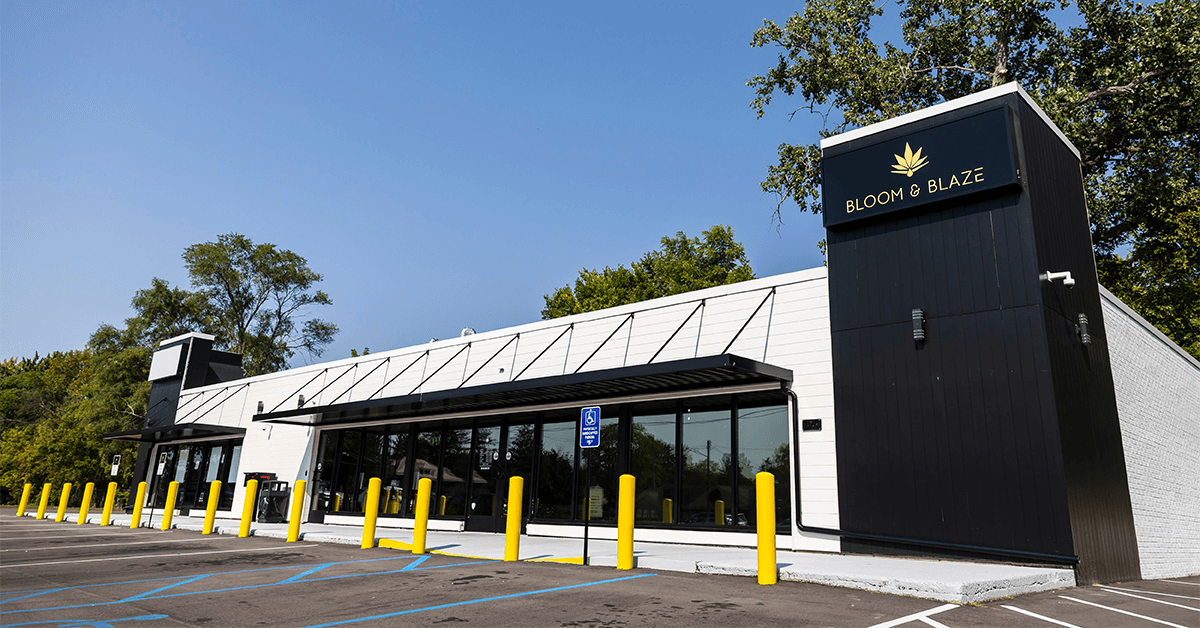Michigan Banks Turning Over a New Leaf with Cannabis

In recent years, Michigan has become a hotbed for both cannabis business and the banking challenges it presents. While cannabis ventures are flourishing in the region, their banking needs remain complex and somewhat contentious. This is a sector that, despite its growing economic significance, is still shrouded in layers of regulatory caution and skepticism. At the intersection of profit and prudence, banks have been forced to tread carefully, often implementing expensive and compliance-heavy programs to navigate the intricacies of cannabis finance.
But for those institutions brave enough to delve into the fray, the rewards have often been worth the risks. With many banks still reluctant to embrace the sector due to perceived compliance burdens and potential risks, pioneers in the field have capitalized on a largely untapped market, gaining access to a plethora of cheap deposits. However, this landscape is rapidly evolving. With more players stepping into the arena, the once straightforward benefits of banking the cannabis industry are becoming more nuanced. The game is no longer simply about risk and reward but about differentiation, innovation, and most crucially, staying ahead of the competition.
In this article, we'll delve into the various facets of the competitive cannabis banking environment in Michigan, from the strategies employed by forward-thinking institutions to the voices of caution, and the innovative solutions emerging in response to growing competition.
Table of Contents
- Cannabis Banking: A Rewarding Proposition for Some Banks
- Competitive Pressures and Evolving Strategies
- The Widening Field: Growing Acceptance and Legislative Shifts
- Diverging Paths: Banking Perspectives on Cannabis Deposits
- Looking Forward: The Future of Cannabis Banking in Michigan
- Conclusion: The Confluence of Cannabis and Banking
Cannabis Banking: A Rewarding Proposition for Some Banks
Cannabis, once a taboo topic, is now a thriving industry in Michigan, and banking it has proved to be a lucrative venture for some financial institutions. The rewards? Access to cheap deposits from a booming sector that's still finding its feet in the traditional financial landscape.
However, banking cannabis isn't as simple as opening up the vaults. There are inherent challenges – regulatory hurdles, the need for heightened due diligence, and the specter of federal illegality, to name a few. These challenges often translate into high operational costs and an increased need for labor, especially when ensuring compliance with both state and federal laws.
To offset these challenges, pioneering banks and financial institutions adopted risk-based pricing strategies. Essentially, these strategies allow banks to adjust the pricing of their services based on the perceived risk of a particular customer or sector. In the case of the cannabis industry, where the risks are deemed higher than other sectors, these banks could justify charging higher fees or offering non-interest bearing accounts.
Yet, it's this very model of risk-based pricing that's now coming under scrutiny. With competition heating up and more banks warming up to the idea of serving cannabis businesses, those that have historically banked the sector are feeling the squeeze. The scenario reminds one of Chris Call, CEO of Santa Rosa, California-based North Bay Credit Union, who pointed out the competitive disadvantage of risk-based pricing when nearby banks are offering potentially better terms.
An early adopter in the game, North Bay Credit Union has been offering accounts to marijuana-related firms since 2017, right after Michigan gave the green light to recreational use in 2016. Recognizing the evolving landscape, North Bay took a bold step to differentiate itself – it started offering interest on cannabis accounts. Call remarked, "Our credit union is probably one of the few institutions that actually pays interest on cannabis deposits." This move wasn't just about competing; it was about offering tangible value to customers in a sector yearning for traditional banking recognition.
But North Bay's strategy isn't just about interest. Over the years, the credit union's portfolio of cannabis accounts has seen steady growth, with several factors contributing to its success. Interest is undeniably a significant lure, but as Call aptly stated, it's also about appreciation, customer loyalty, and standing firm amidst burgeoning competition.
In the next sections, we'll dive deeper into how the industry is shifting, and what that means for banks and credit unions staking their claim in Michigan's cannabis gold rush.
Competitive Pressures and Evolving Strategies
As the adage goes, "The only constant is change." In the financial world's intersection with the burgeoning cannabis industry, this couldn't be truer. The once-blue ocean of cannabis banking is now seeing more players, and with this influx comes inevitable market saturation and intensified competition. This shift is compelling many banks and credit unions to reevaluate and recalibrate their strategies, looking beyond the once-standard risk-based pricing models.
Chris Call's perspective underscores this changing dynamic. The CEO of North Bay Credit Union, based in Santa Rosa, California, highlighted a critical pain point: "Risk-based pricing doesn't always work when you're trying to compete with the bank down the road." It's a sentiment that rings especially true when neighboring institutions begin offering terms that are more enticing to potential cannabis clients.
In response to such pressures, North Bay Credit Union decided to pivot, differentiating its offerings by launching interest-bearing cannabis accounts. This wasn't a mere competitive play but a strategic move to cater to an evolving clientele that was becoming more discerning in their banking choices. During a panel session at the PBC Conference in D.C., Call elucidated this strategy, emphasizing the need for a competitive edge in serving the Californian market. "We sort of have a competitive situation where we need to have that extra edge to offer to our customers out in California," he shared.
Being an early entrant has its advantages, and North Bay made its mark in the cannabis banking space shortly after Michigan legalized recreational marijuana use in 2016. The credit union wasn't merely riding a trend; they were pioneering a pathway, offering accounts to marijuana-linked firms as early as 2017. Their foray into offering interest on cannabis accounts isn't recent either. With a history that goes back over a year, North Bay now boasts about 300 cannabis accounts, with an impressive interest rate of 2.75%.
However, the success story isn't just about numbers or interest rates. Delving deeper, one finds that their portfolio's steady growth over the past few years isn't solely attributable to the interest on accounts. Call attributed a chunk of their success to customer loyalty and the ability to offer value, stating, "It is certainly much appreciated by our customers and contributes to their loyalty in staying with us in the face of growing competition."
Interestingly, for some customers, the interest earnings balance out the credit union's monthly account fee, offering tangible benefits. Call's philosophy reflects a broader sentiment within North Bay: "Our philosophy has always been to treat our [marijuana-related business] accounts as much like any other business account as possible."
As the competitive landscape transforms, more banks are realizing the necessity of innovation, recalibrating strategies, and rethinking their offerings. The next sections will delve into the broader industry shifts and the implications for financial institutions striving to carve a niche in Michigan's evolving cannabis banking sector.
The Widening Field: Growing Acceptance and Legislative Shifts
Historically, the reluctance of mainstream banks to engage with the cannabis sector painted a picture of a market grappling with the contradictions of burgeoning demand on one side and limited financial services options on the other. But like any rapidly growing industry, change was inevitable.
One of the more significant drivers of this change has been the steady shift in public opinion regarding marijuana. As acceptance grows, lawmakers are responding in kind, pushing for legislation that could potentially simplify banking for the cannabis sector. The ripple effect of this is twofold: not only does it signal a potential easing of regulatory burdens, but it also indicates a more palatable atmosphere for financial institutions searching for innovative ways to expand their portfolios.
Recent data from the Financial Crimes Enforcement Network (FinCEN) illuminates this shift. As of the second quarter of 2023, a notable 812 banks and credit unions were actively banking cannabis business clients. This data, based on cannabis-related Suspicious Activity Reports, shows a consistent upward trend – up from 807 in the first quarter and 773 in the last quarter of 2022.
A promising sign of change is on the horizon as legislation specifically targeting the integration of cannabis into mainstream banking comes under review. Dubbed the Secure And Fair Enforcement Regulation Banking Act, this piece of legislation aims to address one of the industry's most significant pain points: its primarily cash-based nature. By fostering a more conducive environment for banks to service the sector, this act, if passed, could drastically reduce the risks associated with managing large volumes of cash and make cannabis banking more appealing to a broader range of financial institutions.
Tony Repanich, the president and chief operating officer of Shield Compliance, underscores the implications of this growing acceptance. As banks become more comfortable with cannabis clients, Repanich suggests a need for differentiation. From offering interest on cannabis accounts to potentially reducing monthly fees, the focus will be on creating compelling value propositions. He mentions an emerging trend: "We're already seeing that banks are doing a trade off between service charges and getting deposit accounts."
This acceptance isn't without its complexities. Repanich also highlights an intriguing banking approach where instead of offering interest, banks are providing cannabis clients with credit towards their service charges. This strategy encourages these clients to maintain higher balances, offsetting monthly fees. Repanich summarizes the evolving thought process: "Bankers have to look at their total deposit strategy. If I'm running CD specials at 5% for nine months, but I could instead get that next cannabis company and additional balances, and I only have to pay them 2% – that 3% is a lot."
This expanding field, while promising, also brings to the fore the need for financial institutions to re-evaluate their offerings, especially when catering to cannabis businesses with high-balance accounts. The underlying question remains: how can banks ensure they're offering competitive, appealing services to an industry that's rapidly shedding its outsider status?
In the forthcoming sections, we'll examine the differing opinions within the banking community and explore how various institutions are strategizing to not only serve but excel in the burgeoning Michigan cannabis banking market.
Diverging Paths: Banking Perspectives on Cannabis Deposits
While the cannabis banking sector continues to evolve, not all financial institutions see eye to eye on the best strategies to pursue. The decision to pay interest on cannabis deposits, for instance, has become a topic of contention.
Brenda Brandom, the Senior Vice President of Bank Michigan, voiced reservations about this approach during the same panel discussion. According to her perspective, the operational costs of a cannabis banking program might outweigh the benefits of offering interest. "There is too much work involved," she expressed, emphasizing the intensive manual labor required to onboard cannabis customers. This sentiment highlights the apprehension some bankers feel, balancing the lure of a rapidly expanding market against the intricacies of serving such a unique client base.
Echoing Brandom's sentiments, Nicole Perry of Dart Bank elaborated on the challenge of treating cannabis businesses as traditional entities. Dart Bank, she mentioned, does not currently offer interest on cannabis accounts, a strategic decision made at the program's inception in 2018. Perry noted, however, that the demand for interest-bearing accounts from the bank's cannabis clientele is palpable. "They want to be treated like a traditional business, but it's not traditional," Perry remarked, underlining the sector's inherent complexities.
But it's not just about the rates or the potential interest. Brandom and Perry both emphasized the value of customer service as a competitive advantage in an increasingly crowded market. Brandom shared an anecdote of how she convinced a prospective client to choose Bank Michigan over a competitor offering interest on cannabis deposits, underscoring that exceptional service could be a compelling differentiator.
Perry also pointed out the challenges of price wars in the sector. With new banks entering the Michigan market and undercutting account fees, Dart Bank faces stiff competition. However, low prices aren't always synonymous with value. Perry recounted instances where cannabis clients returned to Dart Bank after brief stints with competitors that didn't live up to expectations, even if they were offering lower fees.
She summarized her perspective with a simple yet profound statement: "It's not only based on fees. It's based on the experience that you give your customer and your reputation." This sentiment resonates with many in the banking industry, highlighting that while competitive rates and offerings are crucial, the foundation of long-term business relationships often rests on trust, reliability, and exceptional service.
In the next sections, we'll delve deeper into the broader implications of these diverging banking strategies, looking at how they shape the future of cannabis banking in Michigan and, potentially, nationwide.
Looking Forward: The Future of Cannabis Banking in Michigan
As the landscape of cannabis banking in Michigan (and beyond) continues to evolve, several key trends and challenges emerge, signaling the direction in which the sector is headed.
-
Strategic Diversification: As more banks enter the cannabis space, there's a pressing need for diversification. Beyond just interest rates or fees, banks and credit unions will have to consider offering a suite of tailored services that cater to the unique needs of cannabis businesses. This might include specialized loan programs, digital banking solutions tailored for cannabis transactions, and advanced security measures to ensure safe handling of larger cash deposits.
-
Regulatory Evolution: The potential passing of the Secure And Fair Enforcement Regulation Banking Act, coupled with other similar legislations, indicates a future where the regulatory framework might become more favorable to cannabis banking. Banks will need to be proactive, staying abreast of regulatory changes and adjusting their strategies accordingly.
-
The Balance of Cost and Service: As noted by industry insiders like Brandom and Perry, there's a delicate balance to strike between the operational costs of a cannabis banking program and the level of service provided. Institutions will need to find efficient methods to manage these accounts without compromising on quality, perhaps leaning on technology and automation solutions to streamline processes.
-
Emphasis on Relationship Building: As competition heats up, the value of strong client relationships becomes paramount. Financial institutions that prioritize understanding their cannabis clientele, addressing their concerns, and providing personalized solutions will likely enjoy greater loyalty and longer customer retention.
-
Education and Advocacy: Given the unique nature of the cannabis industry and its history, there's a role for banks to play in educating both their internal teams and their clients. By staying informed about the industry's nuances, challenges, and opportunities, banks can position themselves as trusted advisors, helping cannabis businesses navigate the complex financial landscape.
-
Integration of Technology: As with many sectors, technology will likely play a pivotal role in the evolution of cannabis banking. From compliance software that simplifies regulatory adherence to digital platforms that offer seamless banking experiences, the integration of cutting-edge tech solutions will be crucial for banks looking to lead in this space.
In conclusion, the future of cannabis banking in Michigan looks promising, albeit fraught with challenges and complexities. As the industry matures, banks and credit unions that adapt, innovate, and prioritize customer-centric approaches will likely find themselves at the forefront of this exciting frontier.
Conclusion: The Confluence of Cannabis and Banking
The intersection of the cannabis industry with the banking sector represents more than just a business opportunity. It's a reflection of the broader societal shift towards the acceptance of marijuana, both recreationally and medicinally. The state of Michigan, like many others, is caught in this confluence, and its experiences provide valuable insights for other states and regions considering similar journeys.
The challenges faced by banks and credit unions in Michigan highlight the delicate dance of navigating a budding industry still in the throes of regulatory ambiguity. From managing the intricacies of customer demands to ensuring compliance with ever-evolving laws, institutions must tread cautiously.
However, beyond these hurdles lies a market rife with potential. Cannabis businesses, like any other, need a robust financial framework to thrive. They require loans for expansion, secure avenues for transactions, and assurance that their deposits are safe. By serving this industry, banks not only tap into a lucrative market but also contribute to the legitimization of an industry that has long remained in the shadows.
Yet, as the experiences of industry stalwarts like Brandom, Perry, and Call reveal, the path to success in cannabis banking isn't merely about competitive rates or offerings. It's about understanding the unique needs of cannabis businesses, providing tailored solutions, and building enduring relationships based on trust.
The evolution of cannabis banking in Michigan also serves as a harbinger for broader national trends. With legislation like the Secure And Fair Enforcement Regulation Banking Act on the horizon, the entire American banking landscape might soon see a significant shift.
In closing, as the green wave of cannabis acceptance sweeps across the nation, financial institutions that position themselves astutely, backed by informed strategies and customer-centric approaches, will not only reap economic benefits but also play a pivotal role in shaping the future of an industry on the brink of nationwide acceptance.
Share this article:
Spotted a typo, grammatical error, or a factual inaccuracy? Let us know - we're committed to correcting errors swiftly and accurately!








 Helpful Links
Helpful Links